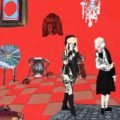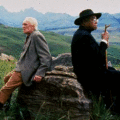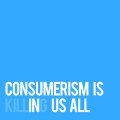 It is this mass of unclean world that we have superimposed on the clean world that we cannot bear. When I looked back, out of the clearness of the open evening, at this Littlehampton dark and amorphous like a bad eruption on the edge of the land, I was so sick I felt I could not come back: all these little amorphous houses like an eruption, a disease on the clean earth; and all of them full of such diseased spirit, every landlady harping on her money, her furniture, every visitor harping on his latitude of escape from money and furniture. The whole thing like an active disease, fighting out the health. One watches them on the sea-shore, all the people, and there is something pathetic, almost wistful in them, as if they wished that their lives did not add up to this nullity of possession, but as if they could not escape. It is a dragon that has devoured us all: these obscene, scaly houses, this insatiable struggle and desire to possess, to possess always and in spite of everything, this need to be an owner, lest one be owned. It is too horrible. One can no longer live with people: it is too hideous and nauseating. Owners and owned, they are like the two sides of a ghastly disease. One feels a sort of madness come over one, as if the world had become hell. But it is only superimposed: it is only a temporary disease. It can be cleaned away.
It is this mass of unclean world that we have superimposed on the clean world that we cannot bear. When I looked back, out of the clearness of the open evening, at this Littlehampton dark and amorphous like a bad eruption on the edge of the land, I was so sick I felt I could not come back: all these little amorphous houses like an eruption, a disease on the clean earth; and all of them full of such diseased spirit, every landlady harping on her money, her furniture, every visitor harping on his latitude of escape from money and furniture. The whole thing like an active disease, fighting out the health. One watches them on the sea-shore, all the people, and there is something pathetic, almost wistful in them, as if they wished that their lives did not add up to this nullity of possession, but as if they could not escape. It is a dragon that has devoured us all: these obscene, scaly houses, this insatiable struggle and desire to possess, to possess always and in spite of everything, this need to be an owner, lest one be owned. It is too horrible. One can no longer live with people: it is too hideous and nauseating. Owners and owned, they are like the two sides of a ghastly disease. One feels a sort of madness come over one, as if the world had become hell. But it is only superimposed: it is only a temporary disease. It can be cleaned away.
The Antidote to the Malady of Materialism







